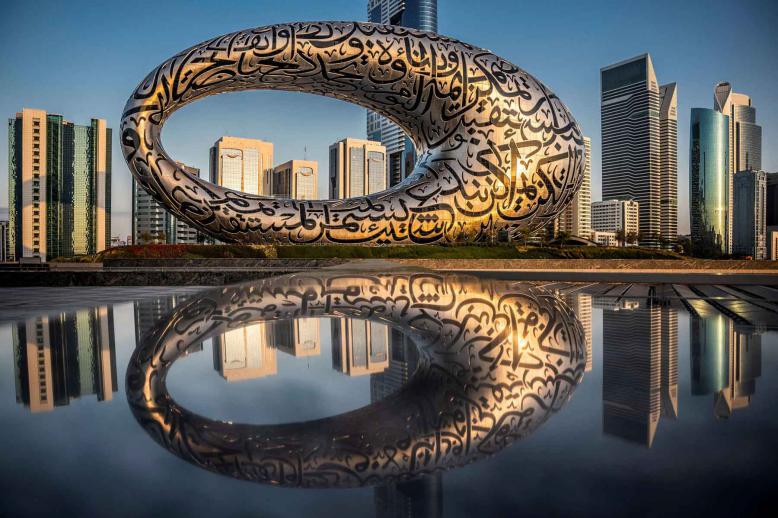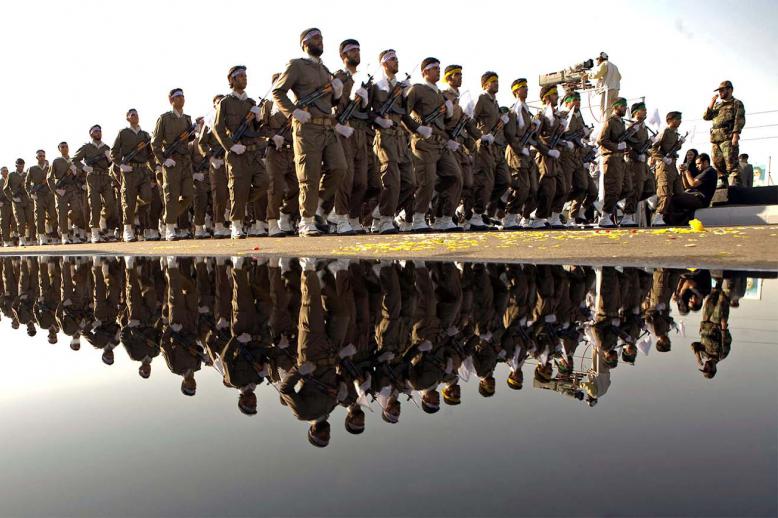Can Trump’s Iran Policy Lead to Regime Change in Tehran?
US President Donald Trump’s Iran policy could change the regime in Tehran but not necessarily in the way Washington envisions. Rather than causing the regime to collapse, reimposing sanctions could weaken civilian political institutions in Iran and accelerate its transformation into a military dictatorship led by the Islamic Revolutionary Guard Corps (IRGC).
The implications of US Secretary of State Mike Pompeo’s first major foreign policy speech were clear, however. On May 21 at the Heritage Foundation, a conservative think-tank in Washington, Pompeo unveiled more than a new Iran policy. For all practical purposes, the speech signified Washington’s preference for a new regime in Tehran.
If that was not apparent from Pompeo’s 12 demands, which covered Iran’s nuclear activities, ballistic missile programme, regional military presence and ambitions, it became clear from his concluding remarks.
Pompeo appeared to urge the Iranian people to rebel against the regime, adding the promise that the United States would wait it out. He said: “At the end of the day, the Iranian people will get to make a choice about their leadership. If they make the decision quickly, that would be wonderful. If they choose not to do so, we will stay hard at this until we achieve the outcomes that I set forward today.”
Unsurprisingly, the Trump administration’s Iran policy was read exactly as intended by the regime in Tehran. Iranian Supreme Leader Ayatollah Ali Khamenei accused the United States of trying “to overthrow the regime from day one [of the revolution]… but their stratagem did not work.”
He said the United States grows “bolder” in the face of any “softness” while Iran’s “resilience” forces Washington to “withdraw.” Khamenei demanded guarantees from European powers in return for Iran’s continued commitment to the nuclear agreement.
He wants the Europeans to condemn US violation of UN Security Council Resolution 2231. The European Union must guarantee to resist US sanctions against Iran and will not raise issues such as Iran’s missile programme and military presence in the Middle East.
It must commit itself to buying Iranian oil, even in the face of US sanctions. It should guarantee economic transactions with Iran.
There is more. If the European Union does not agree to all the demands, the supreme leader indicated that Iran would reserve the right to “prepare” for high enrichment of uranium.
Of course, the European Union is not likely to provide any such “guarantees” to Khamenei. Guarantees would jeopardise relations between individual EU members and Washington. The Europeans have more interest in preserving transatlantic relations than in the relatively small Iranian market.
That said, it’s not simple to predict the future. There are two likely scenarios for Iran if the United States pursues a regime change policy by means of economic sanctions and European attempts to rescue the Iran nuclear deal prove futile.
First, increased public dissatisfaction with the regime may exacerbate tensions between state and society in Iran. One cannot rule out countrywide anti-regime demonstrations. However, it is hard to believe that the IRGC is ready to give in to public pressure. The lack of a clear alternative to the regime makes a transfer of power, as in the 1979 revolution, very difficult.
Second, if the regime deals with rising public dissatisfaction by mobilising the IRGC and the Basij militia, one of the IRGC’s five forces, the outcome could be very different. Sections of the regime may use the opportunity to seize total control, eliminate the last pockets of civilian resistance and turn Iran into something that can only be described as a military dictatorship.
In other words, Trump and Pompeo may get what they want — regime change in Tehran — but it may not be quite what they expected. If the IRGC seizes power and purges the clerical leadership, the regime will have changed but not in the way Washington may have wanted.
Ali Alfoneh is a non-resident senior fellow at Rafik Hariri Centre for the Middle East at the Atlantic Council.
Copyright ©2018 The Arab Weekly







